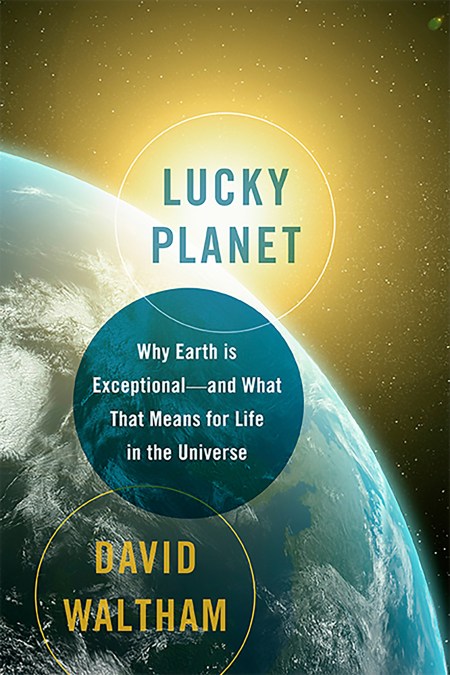Shopping Cart
Lucky Planet
Why Earth is Exceptional-and What That Means for Life in the Universe
Description
Humankind has long fantasized about life elsewhere in the universe. And as we discover countless exoplanets orbiting other stars—among them, rocky super-Earths and gaseous Hot Jupiters—we become ever more hopeful that we may come across extraterrestrial life. Yet even as we become aware of the vast numbers of planets outside our solar system, it has also become clear that Earth is exceptional. The question is: why?
In Lucky Planet, astrobiologist David Waltham argues that Earth’s climate stability is one of the primary factors that makes it able to support life, and that nothing short of luck made such conditions possible. The four-billion-year stretch of good weather that our planet has experienced is statistically so unlikely, he shows, that chances are slim that we will ever encounter intelligent extraterrestrial others.
Describing the three factors that typically control a planet’s average temperature—the heat received from its star, how much heat the planet absorbs, and the concentration of greenhouse gases in the atmosphere—Waltham paints a complex picture of how special Earth’s climate really is. He untangles the mystery of why, although these factors have shifted by such massive measures over the history of life on Earth, surface temperatures have never fluctuated so much as to make conditions hostile to life. Citing factors such as the size of our Moon and the effect of an ever-warming Sun, Waltham challenges the prevailing scientific consensus that other Earth-like planets have natural stabilizing mechanisms that allow life to flourish.
A lively exploration of the stars above and the ground beneath our feet, Lucky Planet seamlessly weaves the story of Earth and the worlds orbiting other stars to give us a new perspective of the surprising role chance plays in our place in the universe.
In Lucky Planet, astrobiologist David Waltham argues that Earth’s climate stability is one of the primary factors that makes it able to support life, and that nothing short of luck made such conditions possible. The four-billion-year stretch of good weather that our planet has experienced is statistically so unlikely, he shows, that chances are slim that we will ever encounter intelligent extraterrestrial others.
Describing the three factors that typically control a planet’s average temperature—the heat received from its star, how much heat the planet absorbs, and the concentration of greenhouse gases in the atmosphere—Waltham paints a complex picture of how special Earth’s climate really is. He untangles the mystery of why, although these factors have shifted by such massive measures over the history of life on Earth, surface temperatures have never fluctuated so much as to make conditions hostile to life. Citing factors such as the size of our Moon and the effect of an ever-warming Sun, Waltham challenges the prevailing scientific consensus that other Earth-like planets have natural stabilizing mechanisms that allow life to flourish.
A lively exploration of the stars above and the ground beneath our feet, Lucky Planet seamlessly weaves the story of Earth and the worlds orbiting other stars to give us a new perspective of the surprising role chance plays in our place in the universe.
Newsletter Signup
By clicking ‘Sign Up,’ I acknowledge that I have read and agree to Hachette Book Group’s Privacy Policy and Terms of Use
